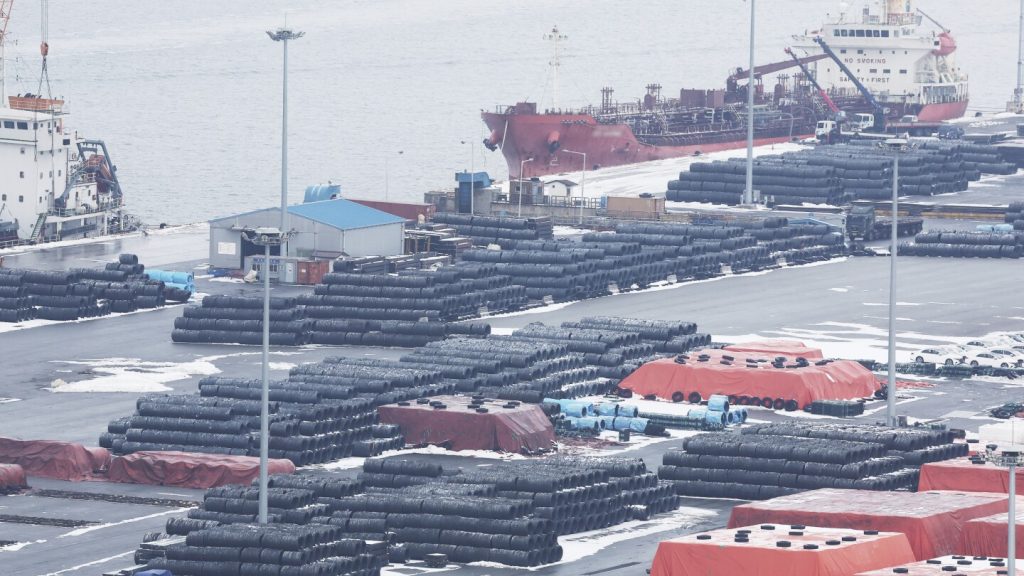South Korea’s Economic Growth Forecast Slashed Amid Trade Tensions and Political Instability
Introduction
South Korea’s economy is facing significant challenges as the country’s top economic think tank, the Korea Development Institute (KDI), slashed its growth forecast for 2025 from 2.0% to 1.6%. This downward revision, the second in four months, reflects growing concerns over the deteriorating global trade environment, particularly due to U.S. President Donald Trump’s expanding tariffs. The KDI also highlighted domestic economic weaknesses, including sluggish consumer spending, a declining job market, and slowing export growth, as key factors contributing to the gloomy outlook.
The Impact of Trump’s Trade Policies on South Korea
The Trump administration’s aggressive trade policies have emerged as a major threat to South Korea’s economy. President Trump recently announced plans to impose 25% tariffs on all foreign steel and aluminum, following a 10% tariff on Chinese imports. While these steel and aluminum tariffs are expected to have a limited direct impact on South Korea, as they account for less than 1% of its exports to the U.S., the broader implications of Trump’s protectionist measures are causing significant concern. Jung Kyuchul, head of KDI’s macroeconomic analysis department, warned that the U.S. could extend tariffs to critical sectors such as semiconductors, automobiles, and pharmaceuticals, which are vital to South Korea’s export-driven economy.
Domestic Economic Challenges and Political Instability
South Korea’s economic struggles are further compounded by domestic challenges. The country is grappling with political instability following the impeachment and criminal indictment of President Yoon Suk Yeol, who briefly imposed martial law in December. This turmoil has weakened the government’s ability to respond effectively to external economic pressures. Additionally, domestic demand remains weak, with slowing consumer spending and a struggling job market. Exports, a cornerstone of South Korea’s economy, are also losing momentum, with most key industries—aside from semiconductors—struggling to gain traction.
The Broader Trade Environment and Global Responses
The U.S. tariffs have sparked a global trade dispute, with the European Union vowing to impose tough countermeasures. South Korea is closely monitoring the situation and is engaging in negotiations with the Trump administration to mitigate the impact of the tariffs. Choi Sang-mok, South Korea’s acting leader and finance minister, pledged to provide “necessary assistance” to companies affected by the tariffs and emphasized the need for coordinated responses with other affected countries, such as Japan and the EU. However, the KDI warned that further escalations in U.S. trade actions or prolonged political instability in South Korea could lead to additional downgrades in its growth projections.
The Semiconductor Industry: A Critical Vulnerability
South Korea’s semiconductor industry, a key driver of its economy, is particularly vulnerable to U.S. trade actions. Semiconductors account for a substantial portion of South Korea’s exports, and any disruption to this sector could have far-reaching consequences. While the current tariffs on steel and aluminum have a limited impact, the potential extension of tariffs to semiconductors has raised concerns among economists and policymakers. Jung Kyuchul emphasized that the economic impact of tariffs on semiconductors would be “considerable,” underscoring the need for South Korea to diversify its trade partners and reduce its reliance on the U.S. market.
Conclusion: Navigating Uncertainty in a Challenging Global Landscape
South Korea’s economic outlook remains uncertain, with both external and internal factors contributing to the challenges ahead. The KDI’s revised growth forecast highlights the need for proactive measures to address the deteriorating trade environment and domestic economic weaknesses. As the U.S. continues to reshape global trade policies, South Korea must navigate this uncertain landscape with a combination of strategic negotiations, economic diversification, and domestic policy reforms. The country’s ability to respond effectively to these challenges will be critical in mitigating the impact of external shocks and ensuring sustainable economic growth in the years to come.








